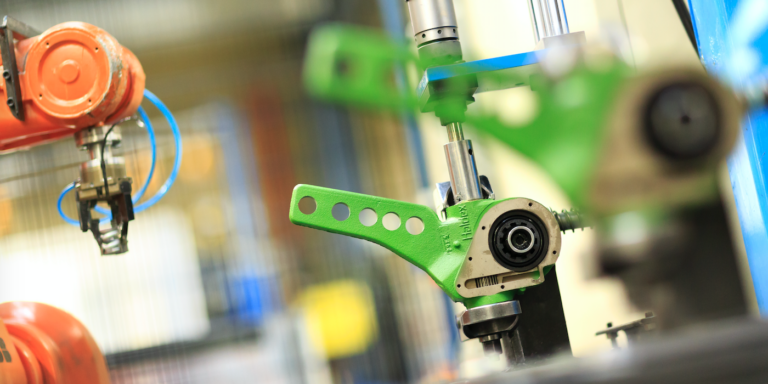Haldex has announced that it has been selected by a “world-leading manufacturer of trucks” to start an evaluation phase of its Scalable Brake System, which is hoped to lead to a development contract at the end of 2019. If the contract is achieved, the truck manufacturer and Haldex would collaborate to develop a solution that is expected to go into production four or five years later.
Haldex presented a range of future projects on connected, autonomous and electrified vehicles under the Scalable Brake System umbrella in spring 2018, with braking subsystems designed to control accurately and communicate back, analyze driving data and make correct decisions.
One concept is the Fast Acting Brake Valve (FABV), a high-performance valve, placed at the wheel end together with an ECU, that is claimed to act 10-times faster than conventional modular-based systems. The result would be 15% less stopping distance, and the ability to control the lateral and longitudinal friction levels on each wheel.
Andreas Jähnke, SVP of R&D at Haldex explained, “When replacing the driver, you need redundancy on different levels. We are not unique to provide steering by braking, but our wheel end accuracy with the FABV is unique.”
Another product in development that also provides a claimed 15% improvement in stopping distance compared to air disc brakes, is the Electromechanical disc brake, which is currently being tested on electric buses, with positive results reported. Replacing the pneumatic brake system with a full electrical brake system also yields energy gains.
“We have worked closely with the customer during the fall and have conducted a number of tests where our test results have been far better than the other solutions presented. We therefore, with confidence, look forward to prove this under the concept phase that is now initiated,” stated Åke Bengtsson, president and CEO of Haldex. “We are very happy for the breakthrough this cooperation entails. It is proof that our technology is innovative and that our solutions are world-leading.”





